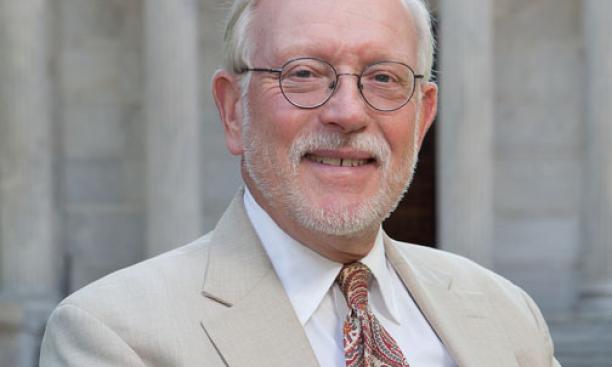

David N. Redman retired in September after 39 years serving as assistant, associate, and acting dean of the graduate school — the longest-serving administrator in the school’s history. For most of that time his focus was academic affairs, reading the application of every student recommended for admission, every annual academic progress report and re-enrollment recommendation, and every degree application for the final public oral — a connection from admission to graduation with an estimated 17,500 grad students.
He led diversity efforts for two decades, counseled and advised students, administered academic discipline, and coordinated professional development programs. Dean William Russel said Redman “set the tone in the school with impeccable integrity, quiet wisdom, and an impressive work ethic.” Redman spoke with PAW managing editor W. Raymond Ollwerther ’71 shortly before his final orientation talk with newly arrived grad students.
ON HIS WORK AT THE GRADUATE SCHOOL I hope I’ve been able to contribute to a sense that graduate students are as good, though good in a different way, as undergraduates, that they contribute vitally to the health of the place. That the faculty are who they are, in part, because we are able to help get good graduate students here. I think I’ve fostered the attitude that graduate students are adults with a focused purpose, and that the less you interfere with developing relationships that they have with faculty — who are going to be their teachers and mentors — the better.
ON CHANGES HE HAS SEEN As opposed to the early and mid-’70s, the graduate school is really recognized as an important, prominent part of the University’s educational enterprise. I see that in the commitment of resources to the graduate program, graduate stipends, the first-year fellowship program, the high percentage of housing [for graduate students]. ... In the last 10 to 15 years, there is a generally recognized attitude that the graduate school has to grow as the faculty grows — that the health of the University is tied to research and teaching faculty, who need and deserve good graduate students. That wasn’t always accepted; it’s a big difference.
ON CHALLENGES FACING THE GRADUATE SCHOOL One: Continuing to monitor the percentage of international students. Some day the huge stream of really top-quality international talent to the U.S. graduate schools will start thinning out. Two: The effect of the economic downturn on the academic job market, and not just on the placement of our students, but our preparing them for the ability to take a research degree into other areas. We can’t be training you just to be a professor at Harvard. Three: How can we focus technical innovation on better teaching and assessments? How do grad students play a role in the new ways of teaching, lecturing, learning? And finally, the whole internationalism push that the University is engaged in — how does that facilitate research and joint degrees and multiple degrees?
